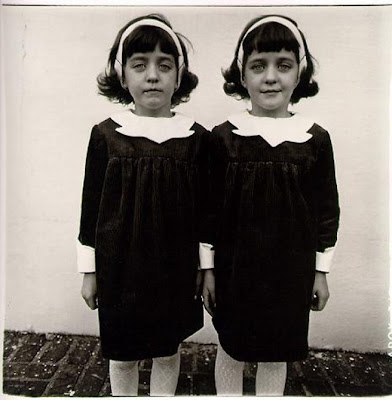The Genius Of Photography – Part 5
Who said “The camera gave me the
license to strip away what you want people to know bout you, to reveal what you
can’t help people knowing about you” and when was it said?
Diane
Arbus in the 1960’s . She was outspoken about the cameras ability to exploit
and steal other peoples lives and faces. She tried to be good, but was drawn by
society to the marginal characters. She referred to them as freaks, people in
her estimation that already passed their test in life.
Do photographers tend to prey on
vulnerable people?
Yes
they do, especially with public demand to know about celebrities and the
vulnerable. It is kind of human nature. We may ask does the person behind the
camera feel compassion for the subject or are they driven by hunger.
Who is Colin Wood?
Colin
Wood was a young 7-year-old boy when Arbus took his photograph in Central Park
holding a toy grenade. It was the era when America was embroiled in the Vietnam
War and crazed violence. Colin Wood had just experienced his parent’s divorce
and it captured an emotional time in his life.
Why do you think Diane Arbus
committed suicide?
Why
would anyone? However, Arbus had some personal challenges. Whilst
professionally thriving. Her marriage ended in 1969 and was a sufferer of
Depression
Why and how did Larry Clark
shoot “Tulsa”?
Larry
Clark first published his book titled “Tulsa” in 1971. It was an era of Sex,
drugs and Violence. It was his life and it became a personal confession, which
he wrote as a diary. The book was seen as an impolite genre and confessional
photography.
Try to explain the concept of
“confessional photography” and what is the “Impolite genre”?
It
is about real life, very intimate and personal. They may be scenes that offend
and that people may not want to see, however there are always people that will
want to see and know about. Impolite genre is rude, subjective and descriptive.
Some may feel uncomfortable at looking at them, they can be shocking and
sometimes quite disturbing.
What will Araki not photograph
and Why?
Araki
will not shoot anything he does not want to remember. He sees photography as
his medium for memory and focuses on that. He says, “ If you don’t shoot
photography, you don’t really remember much, so having these photos helps me to
remember”. His most precious are “Sentimental journey” and “Honeymoon with
Yoko” are about his life with his beloved wife who has since died. They captured
her dying and after she had died as well as their honeymoon.
What is the premise of
postmodernism?
We
are in a world of multi media and saturated with media imagery and media models
of how people are living, that we are what we see in the media and portrayed as
such. There seems to be no individualism in this postmodernists world





No comments:
Post a Comment